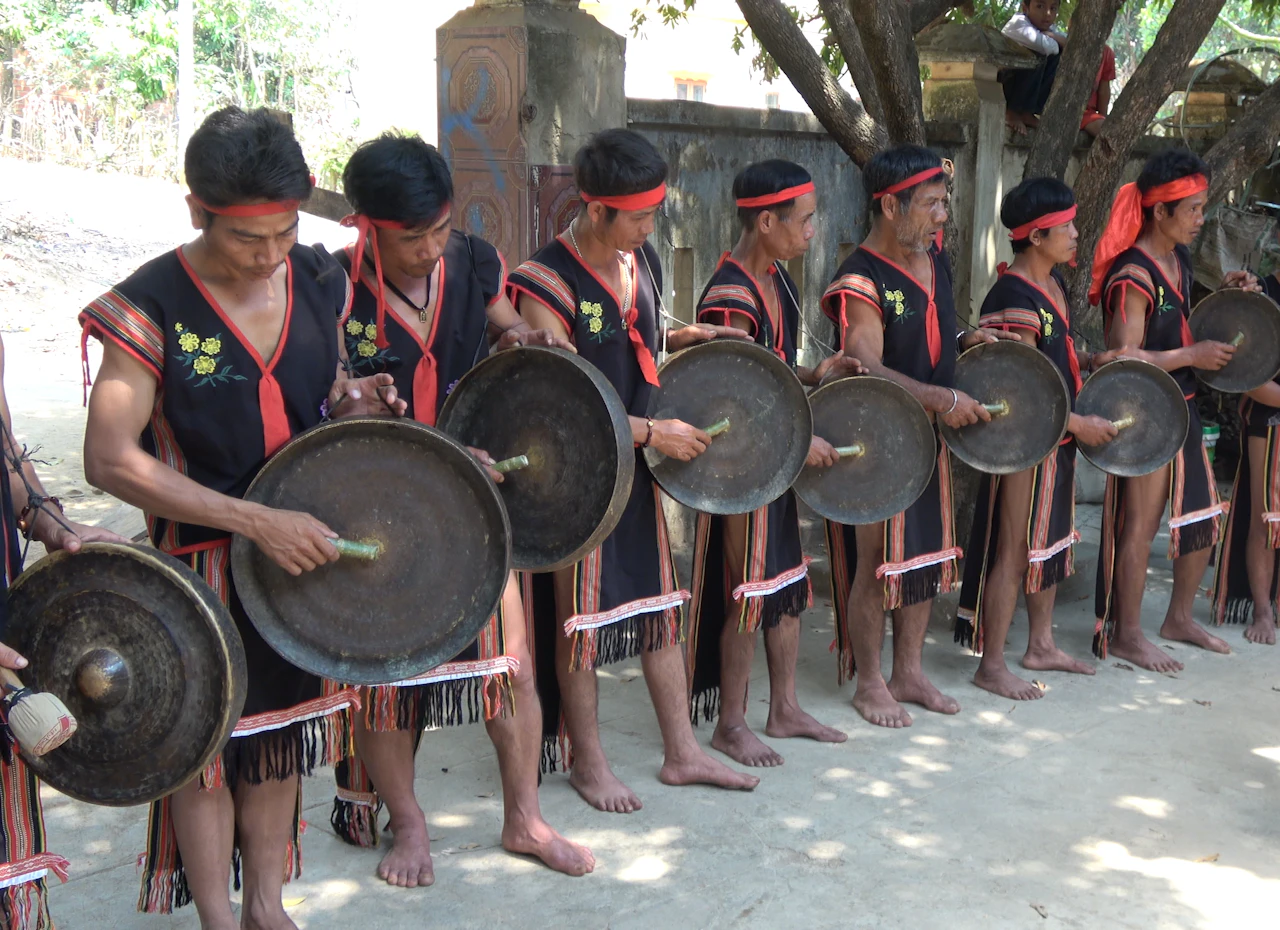
In Vietnam, gongs are mainly produced by the Kinh, the majority ethnic group on the central coast. Gongs from neighbouring countries such as Laos and Cambodia have also been distributed to the Central Highlands at various times and passed down to the indigenous minority people. For them, the gong is a sacred instrument inhabited by spirits (yang). Gong tuners tune gong sets to appropriate tones and scales, which are then used for performances in the rituals and festivals of each village.
I have conducted fieldwork intermittently since 2006 and have clarified various aspects of gong culture from diverse perspectives, including the diversity of gong playing styles and their social roles, the role of gong tuners and tuning methods, gong production methods and gong distribution, musical scales and playing styles of gong sets, and the construction methods of communal houses and the changes in their social functions.
The results of our research have been made widely available to the general public not only through articles and books, but also through the production and screening of ethnographic films, the publication of field recordings, lectures and workshops.
Currently, I am engaged in cross-disciplinary research, mainly on the verbalisation of the tuning techniques of gong tuners and the production of sonic ethnographies focusing on funerary rituals.
.jpg?w=480&fm=webp)



